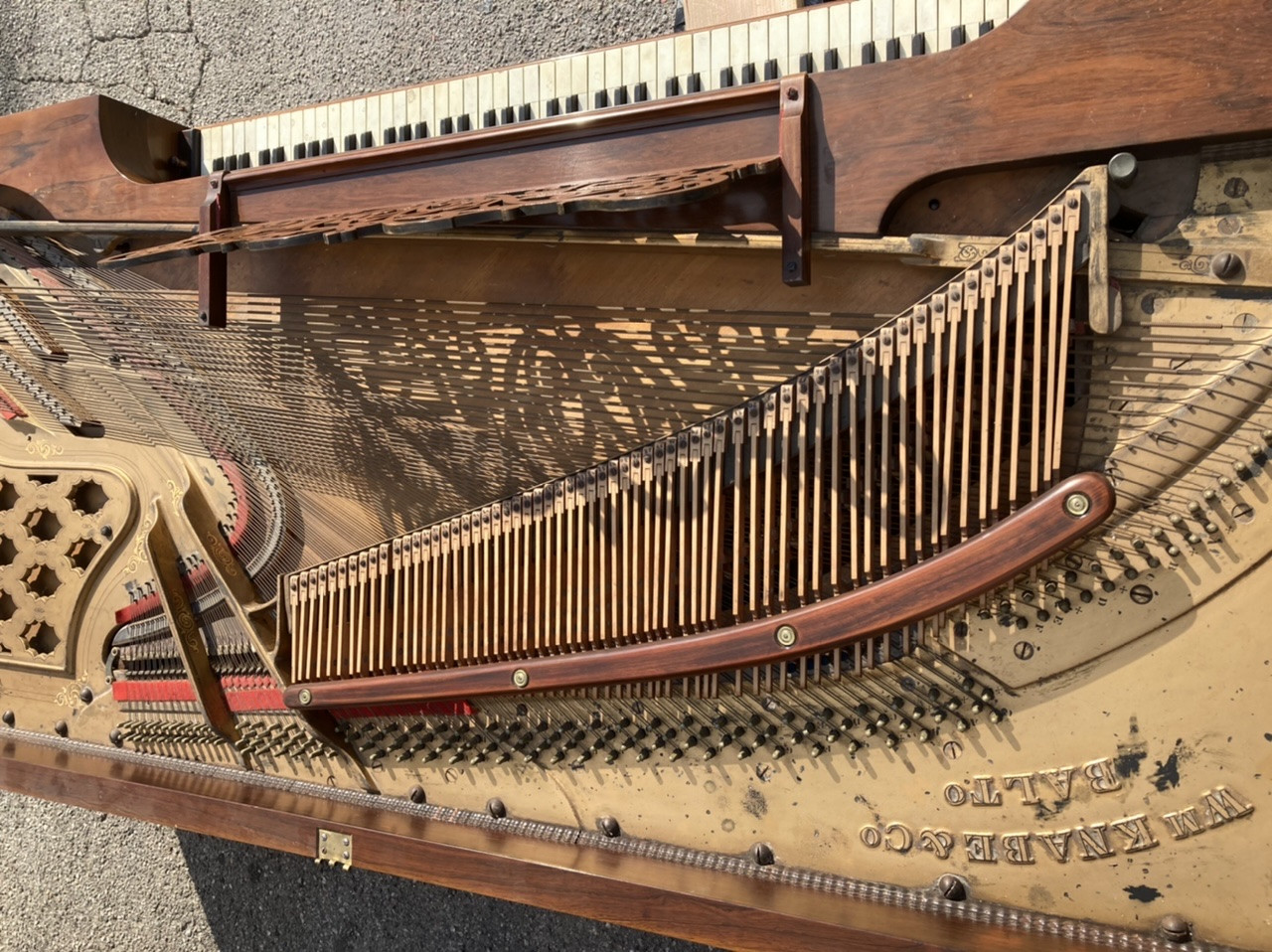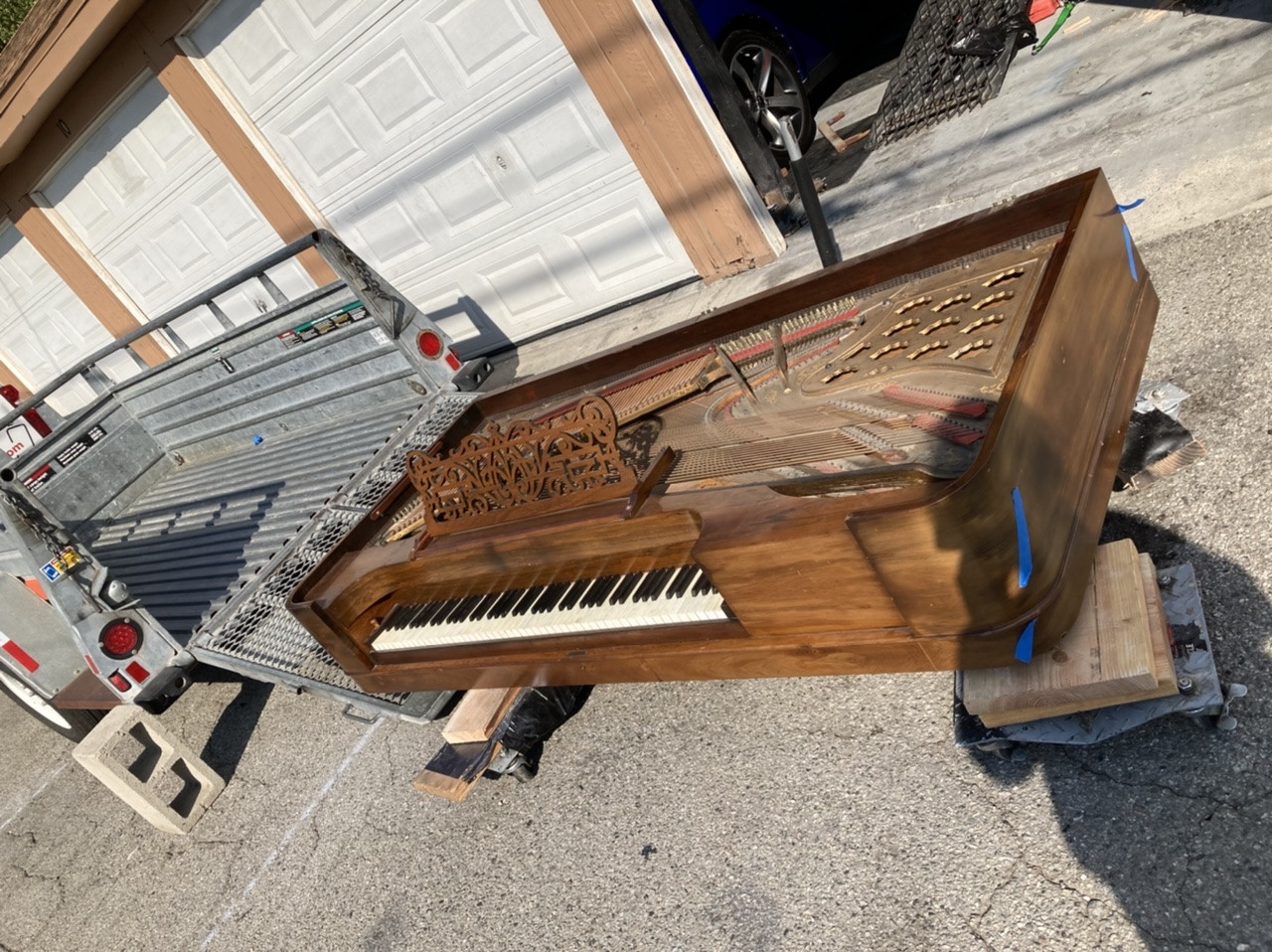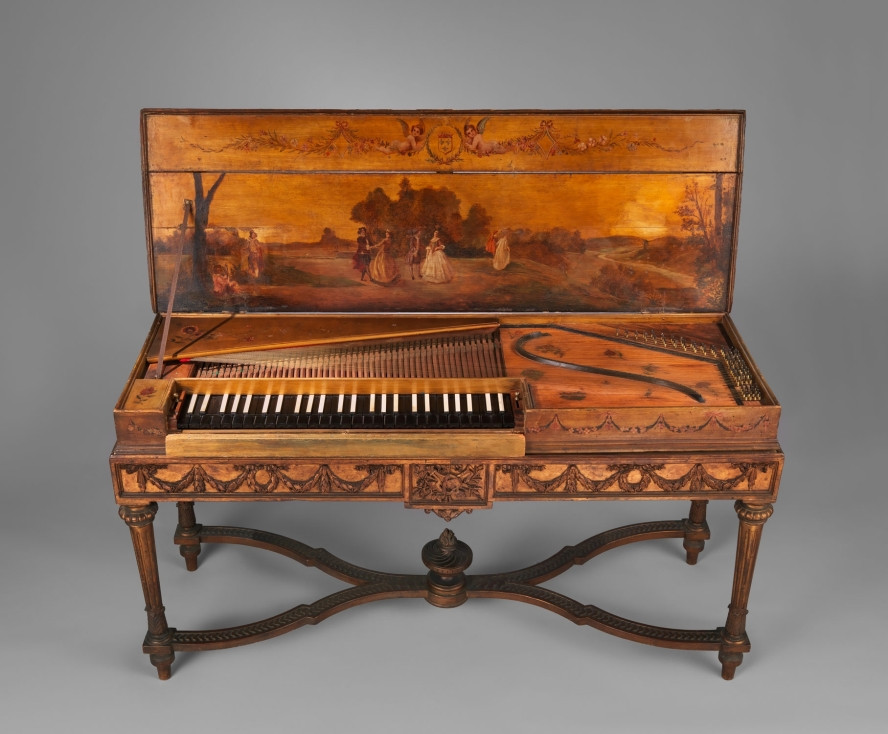I recently acquired a square grand Knabe Piano from the 1850’s. It was restored about 30 years ago and now has some chips in the finish and I don’t really care for the color or fact that it has brush stokes that look like poorly executed faux finish. I also scuffed up the bottom in the process of loading and unloading it onto a trailer which I did entirely alone. The scuffs are from the use of woodblocks to support its weight as I had placed 5 automotive car dollies under it to enable the removal of the legs and ability to roll it.
Upon stripping the finish from one leg I discovered there was several places it had been filled with puty and multiple types of filler used on it. I had initially thought to create a very high gloss black finish and intended on applying several coats of automotive clear coat. Someone talked me out of painting it black and insisted it be stained black and then clear coated. After discovering the difficulty in stripping only one leg I’ve decided that’s not something I want to do and have concluded it’s best to paint it. Having worked with various finishes I’m opting for a marine and industrial coating that I have had excellent results with on a number of other surfaces. My question is in regards to resale. Would this piano be admired by the musical community once it’s been altered and painted black? Would people even recognize it’s been modified? Would it be frowned upon?

-
21) "After stripping the finish from one leg..." Welp, I guess you're changing the color now! 2) Do you have an idea of the instrument's value? As a buyer, I would groan if I discovered the current owner had tried their hand at a finish. If the piano is worthless, I guess do whatever makes you happy, but otherwise, I would rely on a restorer to undo the 30-yr-old finish if they think it wise and possible.– Andy BonnerCommented Oct 13, 2021 at 22:19
-
Also, I would assume that some restoration is needed to the action and other non-aesthetic considerations. Just looking at the picture, the strings show a lot of patina and the felts look pretty faded. (Not necessarily problems in themselves, but I wouldn't be surprised if they bespoke more structural issues.)– Andy BonnerCommented Oct 13, 2021 at 22:21
-
2This question doesn't seem to have anything to do with music practice or theory. Is there an antique restoration SE where it might be on topic?– Bob says reinstate MonicaCommented Oct 14, 2021 at 18:38
-
@BobsaysreinstateMonica I dunno, we explicitly list "Instrument maintenance and repair" as on-topic. While we might be able to split hairs about whether the finish falls under "maintenance," I'm not sure we want to.– Andy BonnerCommented Oct 15, 2021 at 16:31
-
1Are you asking about eventually selling it someday, or are you asking about "flipping" it?– TheodoreCommented Oct 15, 2021 at 16:58
2 Answers
Square pianos are a specialty market, primarily of interest to antique collectors. In general they don't sell for much in the first place, and a collector will be more interested in an "original" instrument. My experience is that painting the instrument a new color will more likely reduce its value than raise it.
-
1I once had a 'fully restored' 1962 Fender Jazz. It was a beautiful instrument, but restoring it meant I got it for £450 rather than the 8 - 10 grand it would otherwise fetch today.– TetsujinCommented Oct 14, 2021 at 6:52
Actually, during the Romantic and Victoriana periods it was customary for the aristocracy to purchase pianos and then hire artists to paint them, including the keys. Pianos were to be seen, not heard. Go ahead and do a search for painted pianos.

-
I think this confirms that black marine and industrial coating isn't period correct :)– ojsCommented Oct 15, 2021 at 11:34
-
1Oh, we've been beautifying keyboard instruments since much earlier than the Romantic! But to note: in these cases, the painting was recognized as a work of art in its own right and increased the value of the instrument. If Banksy wanted to paint a new Yamaha it would probably increase its price—but if he did it to Beethoven's Broadwood, it might still lower it. Unless you're Banksy, or truly don't care about resale, still inadvisable. Commented Oct 15, 2021 at 16:29
